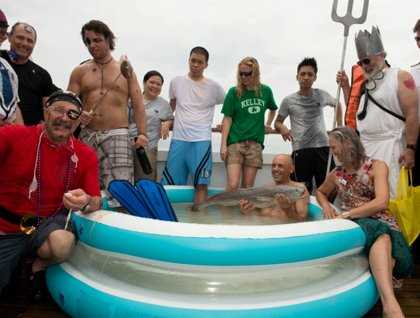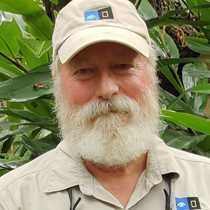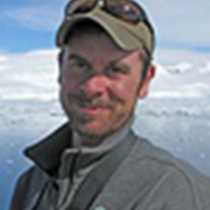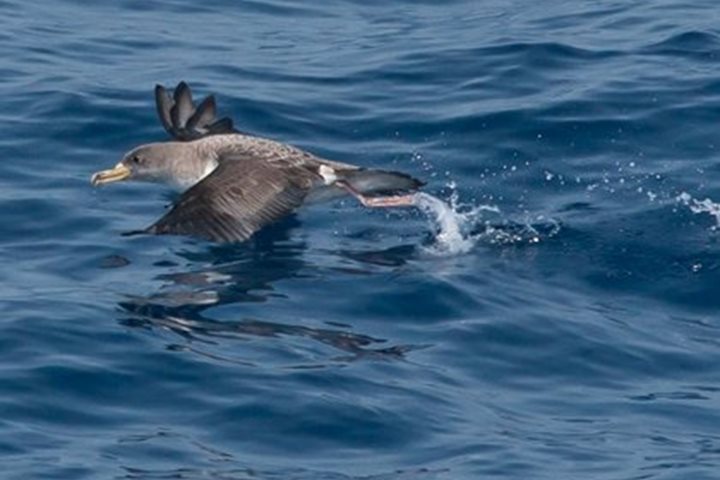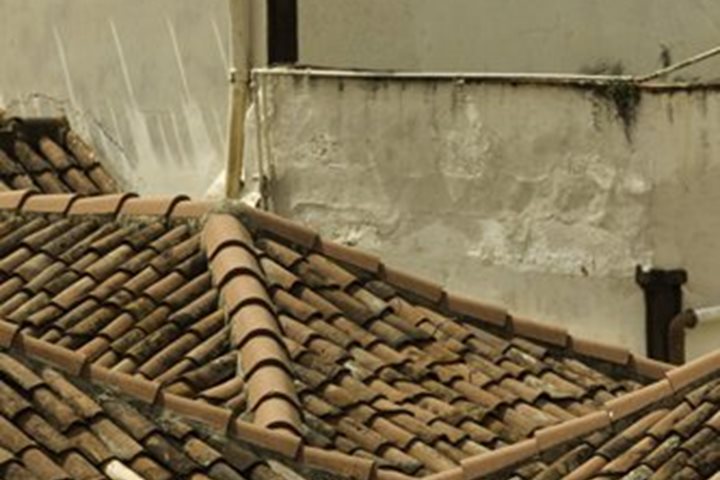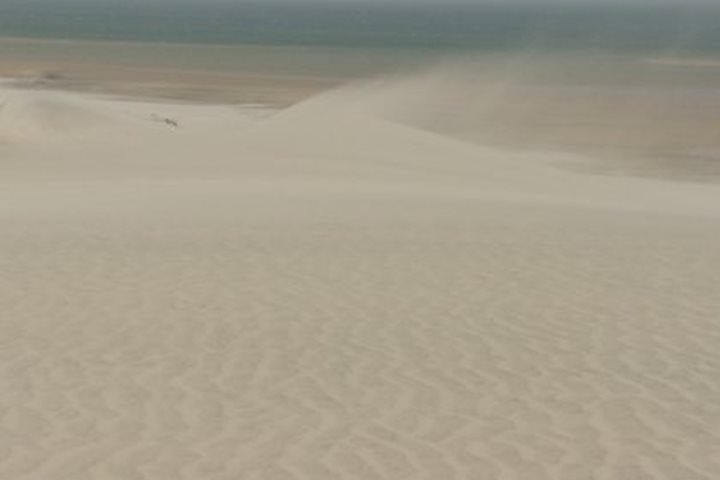Today was a much-appreciated relaxing time at sea as we cruised off the coast of Gabon, even though we were out of sight of land the entire day. Conditions were changeable during the day as we encountered bright sunshine, then clouds and rain, then bright sunshine again. A constant breeze – partly due to our own movement, most likely – provided a pleasant cooling sensation on deck in otherwise hot and humid weather. The sea was a beautiful deep blue color, indicative of very clear water that has little in the way of suspended particles, which also means the water is nutrient-poor and therefore has limited marine life in these parts. So, it was no surprise that we saw very few birds, fish, or marine mammals during the morning. Things did pick up in the afternoon, however, and we were thrilled to have bottlenose dolphins play with the vessel for a while. In addition, we identified a number of seabirds and flying fishes.
The big event of the day was an official crossing on board ship from the Southern Hemisphere to the Northern Hemisphere right after lunch. Of course, like all the other entries we have experienced thus far on our voyage, this entailed necessary immigration procedures. Yet another “face check” was required by the local officials…in this case consisting of various pirates, mermaids, and scalawags headed by their majesties King Neptune and Queen Tethys. In order to fulfill the requirements of officialdom, several crew members, staff members, and guests who had never before crossed the equator by ship (people otherwise known as griffins) had to be examined and washed and properly prepared for clearance. That being accomplished, our ship was given permission to enter the Northern Hemisphere. Phew!
We also enjoyed several lecture presentations that helped prepare us for tomorrow’s anticipated activities in Gabon. One uplifting aspect of modern Gabon that we discussed is how the country is at the forefront of a new enlightenment regarding environmental consciousness. This is possible because Gabon has a small population and fortunately still possesses most of its tropical rain forest habitat. In fact, President Bongo has just recently established 14 new national parks, refuges, and conservation areas that are strategically spread throughout the country. This really puts Gabon in a unique position compared to the other West African nations.

